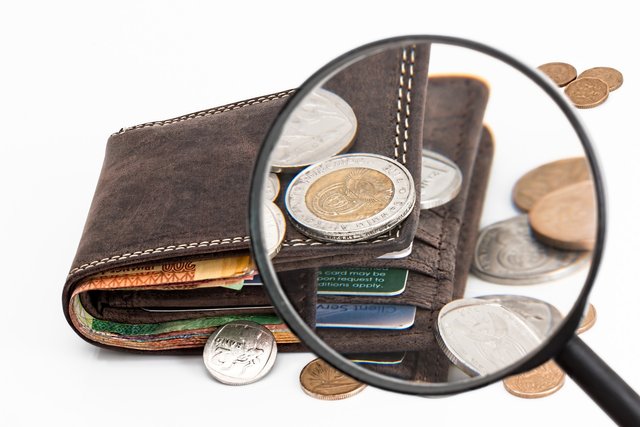THE BRAVE BROWSER WILL PAY YOU TO SURF THE WEB
IF YOU WERE on the internet in the late 1990s, you might remember companies like AllAdvantage that promised to pay you to surf the web. You could install a program that tracked your browsing and showed you targeted ads at the top of the screen; then AllAdvantage would give you a cut of the ad revenue you generated.
These schemes largely disappeared after the dot-com crash. But Brendan Eich, the controversial creator of the JavaScript programming language and cofounder and former CTO of Mozilla, thinks his company Brave Software has found a way to revive that old idea.
Brave makes a browser based on Google Chrome that blocks tracking scripts and other technologies that spy on your online activity. As a result, it also blocks many web ads; if you visit WIRED.com using the Brave browser, you won’t see any ads. But starting Wednesday, Brave will give users the option to see ads that Eich says will respect your privacy. The ads will appear as desktop notifications, he says, not as replacements for the ads the Brave browser blocks. So you still won’t see ads on WIRED.com, but you might see them elsewhere on your screen. If you choose to see these ads, you’ll get 70 percent of the revenue they generate.

Eich hopes Brave can solve two of the web's most vexing problems—privacy and revenue—by turning the traditional digital advertising model on its head. Today, ad networks pay sites like WIRED.com for ad space and web browsers like Brave and Chrome deliver content from those publishers to users. Brave is trying to put the browser in the center of the advertising experience. Instead of paying publishers directly, ad networks would pay Brave, which will pass part of the money to users—and eventually to publishers—and keep a cut for itself.
By handling advertising in the browser on your device, Brave says it will be able to target ads without sending your data to the cloud, and protect your privacy. When you interact with an ad on Brave, the browser sends notice to the company's servers, but doesn't include any identifying information. Eich sees four sets of winners: browser makers get paid; users get paid, and get more privacy; advertisers can target pitches without running afoul of European privacy regulations; and publishers can survive in a world where many users are installing ad blockers.
Eich cofounded Brave in 2015 following his ouster from Mozilla in 2014 over his 2008 donation toward a California ballot initiative to ban same-sex marriages. The first version of Brave’s browser launched in 2016 with the ability to block trackers; the company added features later that year that allowed users to donate to their favorite websites. Now it’s adding the first of its promised advertising features.
Eventually, the company plans to offer a service that will replace any blocked ads on a publisher's site with ads placed by Brave and give those publishers a cut of the ad revenue. Eich says Brave will only replace ads on sites that opt into its service.

The Brave browser; the box in the lower-right-hand corner is an example of the types of ads the browser will display starting Wednesday. BRAVE
Publishers and ad networks might bristle at the idea of putting browser makers in the middle of their business. But in recent years browsers have taken a more active role in shaping the web, instead of merely displaying a website’s content. Chrome now blocks ads on a small number of sites with particularly egregious advertising practices, while browsers like Firefox and Safari have added privacy protections. Meanwhile, browser plugins are giving users more control over their experience. There are Chrome extensions, for example, that let you change Facebook's color scheme, or change the way images are displayed on Pinterest. And of course there are extensions that block all ads.
Trying to win advertisers and publishers to a new model isn't Brave's only challenge. It also needs users. Eich says Brave has 5.9 million users and is growing. But Brave doesn't yet register on web analytics firm StatCounter's rankings of web browsers, where Chrome reigns supreme with about 63 percent market share.
Brave will give users a 70 percent cut of its advertising revenue, which Eich estimates could work out to about $5 a month. Brave will pay users with its own bitcoin-style "cryptocurrency” called Basic Attention Tokens or BAT, which has traded for as little as 12 cents and as much as 46 cents over the past 12 months, according to CoinMarketCap. Today, there’s no way for users who receive BAT for viewing ads to swap their digital currency for dollars, but Eich says Brave will partner with cryptocurrency exchanges to make that possible.
The company offers a service through the cryptocurrency exchange Uphold to allow users to buy BAT and donate it to publishers, and for publishers to exchange the BAT they receive for dollars. Advertisers, which Brave says will include Vice, HomeChef, and a number of cryptocurrency related companies, will be able to buy ads either with BAT or with traditional currencies.
Eich says Brave opted to create its own tokens using the Ethereum cryptocurrency platform in part to avoid regulatory requirements, such as verifying users' identifies, that partners like Uphold are better equipped to handle.
Full Article Found Here
https://www.wired.com/story/brave-browser-will-pay-surf-web/
Download and start Earning BAT with Brave Today
https://brave.com/zac018
Congratulations @thecryptocoinkid! You have completed the following achievement on the Steem blockchain and have been rewarded with new badge(s) :
You can view your badges on your Steem Board and compare to others on the Steem Ranking
If you no longer want to receive notifications, reply to this comment with the word
STOP